세상이 온통 디지털 세상으로 바뀌면서 나타난 슈퍼 기업들이 바로 GAFAM이라 약칭되는 구글, 애플, 페이스북, 아마존, 마이크로소프트 같은 빅챔피언들이다. 구글이나 애플, 마이크로소프트도 그렇지만 지금 SNS를 평정한 페이스북이나 인터넷 유통의 챔피언으로 등극한 아마존도 디지털의 힘을 배경으로 부상한 기업들이다.
금년 초 현재 페이스북의 사용자는 매달 26억 명, 매일 17억 명이라 한다. 전 세계 인터넷 사용자의 60.6%가 페이스북을 사용하고, 미국인의 10명 중 7명이 사용하는데 그중 65%가 35세 이하라 하니 35세 이하의 미국 젊은이들은 둘 중에 하나가 페이스북을 사용하는 셈이다. 올해 1분기 수익도 174억 불이 나 된다. 유튜브나 트위터, 인스타그램도 마찬가지로 강력한 소셜 미디어이다.
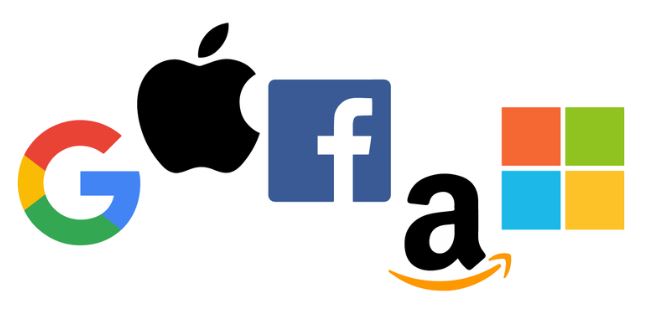
그런데 며칠 전 트럼프 대통령이 "우편투표가 투표 조작으로 이어질 수 있다"라는 자신의 트윗에 경고 딱지를 붙인 트위터에 맞서 "온라인 검열censor 방지에 관한 행정명령"을 내놓으면서 소셜 미디어사들의 자체 검열 정당성에 관한 논쟁에 불을 붙였다. 페이스북이나 유튜브, 트위터 같은 온라인 플랫폼을 제공하고 있는 인터넷 기업들이 자체적으로 하고 있는 검열 정책이 정당한가 하는 문제다.
의견은 갈린다. 관련 기사도 보고 댓글들도 훑어보았는데, 예를 들면 댓글 중에 "트위터가 트럼프의 트윗을 '비판censure'한 것이지 '검열censor'한 것은 아니다. 이건 마치 "editor's note" 같은 것일 뿐이다"라는 의견도 있지만 대체적인 의견은 "표현의 자유free speech"를 보장하고 신장하기 위한 취지에서 이를 불필요한 것으로 보고 있는듯하다. 미국의 통신품위법도 제3자의 게시물에 대한 플랫폼의 법적 책임이 없음을 명시하고 있다.
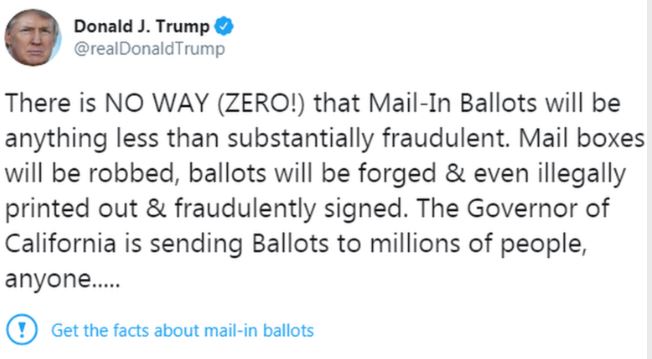
나는 개인적으로 후자의 의견을 지지한다. 어떤 미디어도 정확하게 중립적일 수는 없다. 지금 페이스북이 좌파적 성향을 띠고 있다는 비판에서 보듯이 이런 잣대로 사용자들의 게시글을 자체 검열한다면 이건 민주주의에 대한 중대한 위협이 아닐 수 없다. "페이스북은 어떻게 우리를 단절시키고 민주주의를 훼손하는가"를 쓴 바이디야나단Siva Vadhyanathan 버지니아 대학 미디어과 교수는 소셜 미디어가 소통 확대와 민주주의의 확산에 기여한다고 주장하지만 실제로는 증오와 혐오를 퍼뜨리고 사회적 신뢰를 갉아먹으며 저널리즘을 훼손하고 방대한 감시체계를 구축하고 있다고 비판한다.
트럼프 대통령도 이번 행정명령에서 몇몇 온라인 플랫폼들이, 미국인들이 인터넷상에서 어떻게 접근하고 어떤 말들을 써야 하는지에 대하여 그 선택을 제한한다면, 이는 근본적으로 "비미국적un-American"이고 "반민주적anti-democratic"일 것이라고 비판하고 있다.
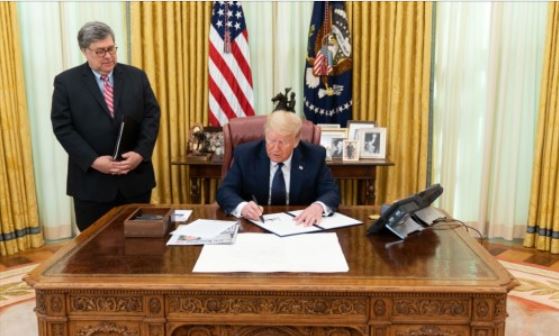
그는 이번 행정명령에서 몇몇 온라인 플랫폼들이 중국 등 외국 정부가 만들어낸 가짜 정보를 퍼뜨림으로써 이익을 보고 있다며 특히 중국의 인터넷상에서의 "조작질"에 대하여 아래와 같이 비판과 경계심을 드러내고 있다.
"예컨대, 한 미국 회사는 중국 공산당을 위해 검색엔진을 개발해 '인권'에 대한 검색을 블랙리스트에 올리고, 그들에 불리한 기사를 감추고, 사용자들을 감시하기에 적합하도록 추적하였다. 이 회사는 또 중국에서 중국군에게 직접적인 이익을 제공하는 연구 파트너십도 만들었다. 다른 회사들은 중국 정부의 유료 광고로 중국의 소수 종교집단에 대한 집단적 투옥에 대한 거짓 정보를 퍼뜨려 인권을 침해하게 도와주었다. 이들은 또 중국정부 관리들로 하여금 자신들의 플랫폼들을 이용해 코비드 19의 기원과 홍콩 민주화 운동에 대한 가짜 정보를 퍼뜨리게 허용함으로써 중국 정부의 해외 선전선동을 증진시켰다."
나는 개인적으로 작년 2월부터 페이스북을 능동적으로 활용하기 시작했으니 이제 1년 남짓 되었다. 비대면 사회 활동이라 당초에는 별 기대를 하지 않았으나 지금은 그 유용성을 인지하게 되었고 하루 평균 사용 시간도 1시간은 족히 넘는듯하다. 페이스북의 창립자인 마크 저커버그도 페이스북이 세상을 좀 더 연결하여 개방적으로 만들 것이라고 했는데 나도 크게 동감한다. 이런 의미에서라도 페이스북 등 소셜 미디어 상에서 순기능보다 역기능이 활개치는 일이 없도록 관심을 기울여야 할 것이다.
지난 5.20. 저커버그는 중국의 인터넷 검열을 비판하였는데, 주목할 것은 그가 "인터넷을 규제하려는 중국식 모델이 다른 나라로 확산되는 움직임에 우려한다"라며 "보다 서방세계의 공통 가치인 민주적인 접근을 따라야 한다"라고 언급했다는 것이다. 이것은 소셜 미디어 기업에 의한 자체적인 검열과는 차원이 다른, 국가에 의한 검열을 말한다. 중국이 인터넷을 검열하고 차단한다는 건 이미 잘 알려진 사실이지만 저커버그가 우려하는 것은 다른 나라가 그런 중국 모델을 "복제replicating" 한다는 것이다.
그렇다면 우리나라는 어떤가? 나의 페친들도 가끔 경고 딱지가 붙었다고 글을 올리는 경우가 있고 보수 유튜버들로 부터도 여사한 불평이 나오고 있다. 나도 언젠가부터인지 페북에서 특정 단어를 입력할 때 거부하는 듯한 느낌을 받고 있다. 이러한 제한 조치가 인터넷 기업들에 의한 것인지 아니면 그 배후가 있는 것인지는 확실치 않지만 이번 트럼프의 트윗 논쟁을 계기로 페북 코리아나 구글 코리아도 그 입장을 보다 분명히 할 필요가 있어 보인다. 우리 정보통신망법은 현 정부 때인 2018년 말에 개정되어 플랫폼 운영자가 불법정보 유통 금지등을 위한 자율규제 가이드라인에 관한 법적 근거를 갖게 되었다. 그런데 이 불법정보라는 것의 범위가 너무 광범위한데다 정부의 지원 규정도 신설되어 플랫폼 운영자의 자의적인 가이드라인 운영과 함께 정부의 개입 또한 우려된다.
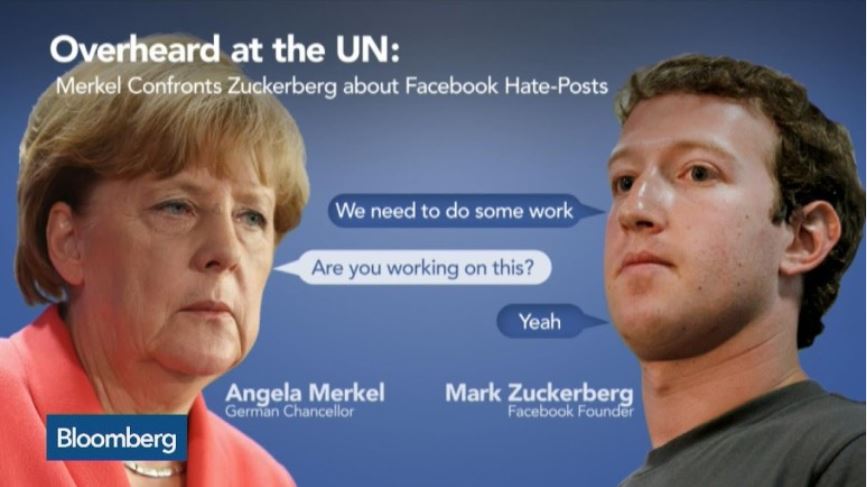
아무튼 저커버그의 입장은 명확하다. 즉각적인 위험이 없는 한 표현의 자유는 최대한 존중되어야 한다며 트럼프의 트윗에 대하여도 정치인의 포스팅, 즉 정치적인 의사를 담고 있는 포스팅을 저해하고자 하는 어떤 의도도 없음을 밝힌 바 있다. 2015. 9월 메르켈 총리는 저커버그를 강하게 압박하기도 했는데, 페이스북이 인종주의적 포스팅Hate-Posting에 대하여 충분한 조치를 취하지 않고 있다고 보았기 때문이다.
하버마스Juergen Habermas는 이른바 "재봉건화Refeudalisierung"에 관하여 이야기한 적이 있는데 사람들이 뽑지도 않은 권력의 지배를 받는다는 것이다. 가장 극명한 예가 구글이나 페이스북이다. 저커버그가 전 세계적으로 어떤 대접을 받았는지를 보여주는 사진 시리즈가 있는데 그는 어디를 가든 마치 국가 원수처럼 대접을 받았다. 페이스북이 지닌 엄청난 정치적 영향력 때문이다. 저커버그는 어느 누구로 부터도 표를 받지 않았지만 마치 봉건 군주와 같은 정치적 영향력을 갖는다. 선출되지 않은 자가 권력을 갖게 되는 현상을 보면서 우리 사회가 과거의 봉건시대로 돌아가고 있음을 느낀다. 이런 걸 보면 역시 트럼프 대통령이 사나이 답다는 생각이 든다. 새롭게 등극한 군주들에 맞서 싸우는 것도 마다 않기 때문이다.
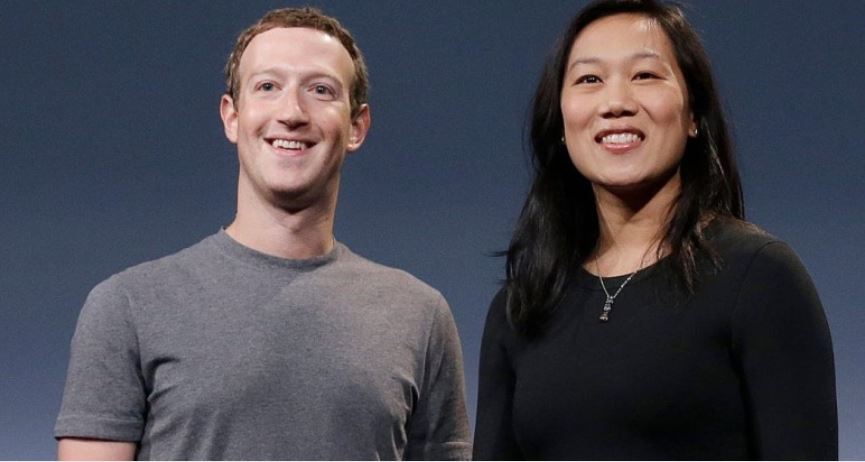
사족 같은 이야기지만 저커버그 Mark Zuckerberg의 조상은 아마도 독일계 유대인일 것이다. 그의 이름은 서양에 보편적인 마크 Mark이지만 성인 저커버그의 의미는 "사탕산'이다. 저커는 사탕, 설탕이란 의미를 갖는 독일어 '줏커Zucker'이며 버그는 산, 언덕이란 의미를 갖는 독일어 '베르크Berg'이다. 독일인들은 합스부르크 시절 성이 없었던 유대인들에게 돈을 받고 성을 허용해 주었는데, 대부분 그들의 직업과 관계된 것이거나 아니면 일부러 우스꽝스러운 성을 붙여주었다 한다. 그래서 저커버그의 조상이 사탕산- 사탕이 사탕수수로 만들어지지만 소금산과 같이 사탕으로 이루어진 산도 있다 -에서 일하던 사람이었는지는 불명하지만, 페북이 앞으로도 변함없이 사람들이 찾아가는 사탕 같은 달콤한 산으로 남기 바란다. 그의 부인이 중국인이어서 페북에 중국인 간부들이 많다는데 나로서는 알 길이 없다.
[출처] 페이스북은 과연 민주주의를 훼손하고 있는가?
Executive Order on Preventing Online Censorship
Infrastructure & Technology
Issued on: May 28, 2020
By the authority vested in me as President by the Constitution and the laws of the United States of America, it is hereby ordered as follows:
Section 1. Policy. Free speech is the bedrock of American democracy. Our Founding Fathers protected this sacred right with the First Amendment to the Constitution. The freedom to express and debate ideas is the foundation for all of our rights as a free people.
In a country that has long cherished the freedom of expression, we cannot allow a limited number of online platforms to hand pick the speech that Americans may access and convey on the internet. This practice is fundamentally un-American and anti-democratic. When large, powerful social media companies censor opinions with which they disagree, they exercise a dangerous power. They cease functioning as passive bulletin boards, and ought to be viewed and treated as content creators.
The growth of online platforms in recent years raises important questions about applying the ideals of the First Amendment to modern communications technology. Today, many Americans follow the news, stay in touch with friends and family, and share their views on current events through social media and other online platforms. As a result, these platforms function in many ways as a 21st century equivalent of the public square.
Twitter, Facebook, Instagram, and YouTube wield immense, if not unprecedented, power to shape the interpretation of public events; to censor, delete, or disappear information; and to control what people see or do not see.
As President, I have made clear my commitment to free and open debate on the internet. Such debate is just as important online as it is in our universities, our town halls, and our homes. It is essential to sustaining our democracy.
Online platforms are engaging in selective censorship that is harming our national discourse. Tens of thousands of Americans have reported, among other troubling behaviors, online platforms “flagging” content as inappropriate, even though it does not violate any stated terms of service; making unannounced and unexplained changes to company policies that have the effect of disfavoring certain viewpoints; and deleting content and entire accounts with no warning, no rationale, and no recourse.
Twitter now selectively decides to place a warning label on certain tweets in a manner that clearly reflects political bias. As has been reported, Twitter seems never to have placed such a label on another politician’s tweet. As recently as last week, Representative Adam Schiff was continuing to mislead his followers by peddling the long-disproved Russian Collusion Hoax, and Twitter did not flag those tweets. Unsurprisingly, its officer in charge of so-called ‘Site Integrity’ has flaunted his political bias in his own tweets.
At the same time online platforms are invoking inconsistent, irrational, and groundless justifications to censor or otherwise restrict Americans’ speech here at home, several online platforms are profiting from and promoting the aggression and disinformation spread by foreign governments like China. One United States company, for example, created a search engine for the Chinese Communist Party that would have blacklisted searches for “human rights,” hid data unfavorable to the Chinese Communist Party, and tracked users determined appropriate for surveillance. It also established research partnerships in China that provide direct benefits to the Chinese military. Other companies have accepted advertisements paid for by the Chinese government that spread false information about China’s mass imprisonment of religious minorities, thereby enabling these abuses of human rights. They have also amplified China’s propaganda abroad, including by allowing Chinese government officials to use their platforms to spread misinformation regarding the origins of the COVID-19 pandemic, and to undermine pro-democracy protests in Hong Kong.
As a Nation, we must foster and protect diverse viewpoints in today’s digital communications environment where all Americans can and should have a voice. We must seek transparency and accountability from online platforms, and encourage standards and tools to protect and preserve the integrity and openness of American discourse and freedom of expression.
Sec. 2. Protections Against Online Censorship. (a) It is the policy of the United States to foster clear ground rules promoting free and open debate on the internet. Prominent among the ground rules governing that debate is the immunity from liability created by section 230(c) of the Communications Decency Act (section 230(c)). 47 U.S.C. 230(c). It is the policy of the United States that the scope of that immunity should be clarified: the immunity should not extend beyond its text and purpose to provide protection for those who purport to provide users a forum for free and open speech, but in reality use their power over a vital means of communication to engage in deceptive or pretextual actions stifling free and open debate by censoring certain viewpoints.
Section 230(c) was designed to address early court decisions holding that, if an online platform restricted access to some content posted by others, it would thereby become a “publisher” of all the content posted on its site for purposes of torts such as defamation. As the title of section 230(c) makes clear, the provision provides limited liability “protection” to a provider of an interactive computer service (such as an online platform) that engages in “‘Good Samaritan’ blocking” of harmful content. In particular, the Congress sought to provide protections for online platforms that attempted to protect minors from harmful content and intended to ensure that such providers would not be discouraged from taking down harmful material. The provision was also intended to further the express vision of the Congress that the internet is a “forum for a true diversity of political discourse.” 47 U.S.C. 230(a)(3). The limited protections provided by the statute should be construed with these purposes in mind.
In particular, subparagraph (c)(2) expressly addresses protections from “civil liability” and specifies that an interactive computer service provider may not be made liable “on account of” its decision in “good faith” to restrict access to content that it considers to be “obscene, lewd, lascivious, filthy, excessively violent, harassing or otherwise objectionable.” It is the policy of the United States to ensure that, to the maximum extent permissible under the law, this provision is not distorted to provide liability protection for online platforms that — far from acting in “good faith” to remove objectionable content — instead engage in deceptive or pretextual actions (often contrary to their stated terms of service) to stifle viewpoints with which they disagree. Section 230 was not intended to allow a handful of companies to grow into titans controlling vital avenues for our national discourse under the guise of promoting open forums for debate, and then to provide those behemoths blanket immunity when they use their power to censor content and silence viewpoints that they dislike. When an interactive computer service provider removes or restricts access to content and its actions do not meet the criteria of subparagraph (c)(2)(A), it is engaged in editorial conduct. It is the policy of the United States that such a provider should properly lose the limited liability shield of subparagraph (c)(2)(A) and be exposed to liability like any traditional editor and publisher that is not an online provider.
(b) To advance the policy described in subsection (a) of this section, all executive departments and agencies should ensure that their application of section 230(c) properly reflects the narrow purpose of the section and take all appropriate actions in this regard. In addition, within 60 days of the date of this order, the Secretary of Commerce (Secretary), in consultation with the Attorney General, and acting through the National Telecommunications and Information Administration (NTIA), shall file a petition for rulemaking with the Federal Communications Commission (FCC) requesting that the FCC expeditiously propose regulations to clarify:
(i) the interaction between subparagraphs (c)(1) and (c)(2) of section 230, in particular to clarify and determine the circumstances under which a provider of an interactive computer service that restricts access to content in a manner not specifically protected by subparagraph (c)(2)(A) may also not be able to claim protection under subparagraph (c)(1), which merely states that a provider shall not be treated as a publisher or speaker for making third-party content available and does not address the provider’s responsibility for its own editorial decisions;
(ii) the conditions under which an action restricting access to or availability of material is not “taken in good faith” within the meaning of subparagraph (c)(2)(A) of section 230, particularly whether actions can be “taken in good faith” if they are:
(A) deceptive, pretextual, or inconsistent with a provider’s terms of service; or
(B) taken after failing to provide adequate notice, reasoned explanation, or a meaningful opportunity to be heard; and
(iii) any other proposed regulations that the NTIA concludes may be appropriate to advance the policy described in subsection (a) of this section.
Sec. 3. Protecting Federal Taxpayer Dollars from Financing Online Platforms That Restrict Free Speech. (a) The head of each executive department and agency (agency) shall review its agency’s Federal spending on advertising and marketing paid to online platforms. Such review shall include the amount of money spent, the online platforms that receive Federal dollars, and the statutory authorities available to restrict their receipt of advertising dollars.
(b) Within 30 days of the date of this order, the head of each agency shall report its findings to the Director of the Office of Management and Budget.
(c) The Department of Justice shall review the viewpoint-based speech restrictions imposed by each online platform identified in the report described in subsection (b) of this section and assess whether any online platforms are problematic vehicles for government speech due to viewpoint discrimination, deception to consumers, or other bad practices.
Sec. 4. Federal Review of Unfair or Deceptive Acts or Practices. (a) It is the policy of the United States that large online platforms, such as Twitter and Facebook, as the critical means of promoting the free flow of speech and ideas today, should not restrict protected speech. The Supreme Court has noted that social media sites, as the modern public square, “can provide perhaps the most powerful mechanisms available to a private citizen to make his or her voice heard.” Packingham v. North Carolina, 137 S. Ct. 1730, 1737 (2017). Communication through these channels has become important for meaningful participation in American democracy, including to petition elected leaders. These sites are providing an important forum to the public for others to engage in free expression and debate. Cf. PruneYard Shopping Center v. Robins, 447 U.S. 74, 85-89 (1980).
(b) In May of 2019, the White House launched a Tech Bias Reporting tool to allow Americans to report incidents of online censorship. In just weeks, the White House received over 16,000 complaints of online platforms censoring or otherwise taking action against users based on their political viewpoints. The White House will submit such complaints received to the Department of Justice and the Federal Trade Commission (FTC).
(c) The FTC shall consider taking action, as appropriate and consistent with applicable law, to prohibit unfair or deceptive acts or practices in or affecting commerce, pursuant to section 45 of title 15, United States Code. Such unfair or deceptive acts or practice may include practices by entities covered by section 230 that restrict speech in ways that do not align with those entities’ public representations about those practices.
(d) For large online platforms that are vast arenas for public debate, including the social media platform Twitter, the FTC shall also, consistent with its legal authority, consider whether complaints allege violations of law that implicate the policies set forth in section 4(a) of this order. The FTC shall consider developing a report describing such complaints and making the report publicly available, consistent with applicable law.
Sec. 5. State Review of Unfair or Deceptive Acts or Practices and Anti-Discrimination Laws. (a) The Attorney General shall establish a working group regarding the potential enforcement of State statutes that prohibit online platforms from engaging in unfair or deceptive acts or practices. The working group shall also develop model legislation for consideration by legislatures in States where existing statutes do not protect Americans from such unfair and deceptive acts and practices. The working group shall invite State Attorneys General for discussion and consultation, as appropriate and consistent with applicable law.
(b) Complaints described in section 4(b) of this order will be shared with the working group, consistent with applicable law. The working group shall also collect publicly available information regarding the following:
(i) increased scrutiny of users based on the other users they choose to follow, or their interactions with other users;
(ii) algorithms to suppress content or users based on indications of political alignment or viewpoint;
(iii) differential policies allowing for otherwise impermissible behavior, when committed by accounts associated with the Chinese Communist Party or other anti-democratic associations or governments;
(iv) reliance on third-party entities, including contractors, media organizations, and individuals, with indicia of bias to review content; and
(v) acts that limit the ability of users with particular viewpoints to earn money on the platform compared with other users similarly situated.
Sec. 6. Legislation. The Attorney General shall develop a proposal for Federal legislation that would be useful to promote the policy objectives of this order.
Sec. 7. Definition. For purposes of this order, the term “online platform” means any website or application that allows users to create and share content or engage in social networking, or any general search engine.
Sec. 8. General Provisions. (a) Nothing in this order shall be construed to impair or otherwise affect:
(i) the authority granted by law to an executive department or agency, or the head thereof; or
(ii) the functions of the Director of the Office of Management and Budget relating to budgetary, administrative, or legislative proposals.
(b) This order shall be implemented consistent with applicable law and subject to the availability of appropriations.
(c) This order is not intended to, and does not, create any right or benefit, substantive or procedural, enforceable at law or in equity by any party against the United States, its departments, agencies, or entities, its officers, employees, or agents, or any other person.
국문 번역 "온라인 검열 방지에 관한 행정명령"
미국 헌법과 법이 대통령에게 부여한 권한에 의해 나는 다음과 같이 명령한다.
의사 표현의 자유는 미국 민주주의의 반석이다. 우리 건국의 아버지들은 이 신성한 권리를 수정헌법 제1조로 보호했다. 자신의 생각을 표현하고 논쟁할 자유는 모든 자유인으로서 우리의 모든 권리의 근본이다. 긴 세월 동안 표현의 자유를 지켜 온 이 나라에서, 우리는 제한된 수의 온라인 플랫폼이 미국인들이 온라인상에서 접하고 전달할 수 있는 표현을 고르도록 허용할 수는 없다. 이런 행위는 비미국적이고 반민주적이다. 크고 강력한 소셜 미디어가 자신들이 반대하는 의견을 검열하는 것은 위험한 권력을 휘두르는 것이다. 그들이 수동적인 게시판으로서의 역할을 그만둔다면, 그들은 당연히 콘텐츠 창조자로서 간주되고 취급되어야 한다.
근자의 온라인 플랫폼의 성장은 수정헌법 제1조의 정신을 현대 통신 기술에 적용함에 있어서 중요한 문제점을 제기한다. 오늘날 많은 미국인들을 소셜 미디어와 다른 플랫폼을 통해서 뉴스를 추적하고, 친구들과 가족들과 연락을 하고, 현재 일어나고 있는 이슈에 대해 자신들의 의견을 나눈다. 그 결과 이 플랫폼들은 여러 가지로 21세기형 공공 광장의 역할을 한다.
트위터, 페이스북, 인스타그람, 그리고 유튜브는, 설사 전례가 없는 게 아니라 해도, 어마어마한 힘을 행사해 공공 사건에 대한 해석을 만들어낸다. 이들은 정보를 검열, 삭제, 소멸시킨다. 또 사람들이 보아야 할 것과 보지 않아야 할 것을 통제한다. 나는 대통령으로서 인터넷상의 자유롭고 공개된 토론에 대한 지지를 분명히 했다. 온라인상의 그러한 토론은 대학, 타운홀, 우리 가정에서만큼 중요하다. 이들은 우리 민주주의를 지속시키는 데 필수적이다.
온라인 플랫폼은 우리나라의 진로에 유해한 선택적 검열을 자행하고 있다. 수만 명의 미국인들이 온라인 플랫폼들이 콘텐츠가 규정을 위반하지 않았음에도 불구하고 콘텐츠에 딱지를 붙인다고 신고했으며, 또 이 플랫폼들이 공지도 하지 않고, 설명도 하지 않고, 회사의 방침을 변경하고 특정한 견해를 편증(偏憎) 하고 콘텐츠를 삭제하고, 전 계정을 경고도 합리적인 이유도 없이 일방적으로 없애고 있다고 신고했다.
트위터는 지금 특정 트윗을 선택해 경고 딱지를 붙이는데 이는 명백히 정치적 편견이 반영된 것이다. 신고된 바와 같이 트위터는 그런 짓을 다른 정치인들의 트위터에는 하지 않은 것으로 보인다. 지난주에는 아담 쉬프는 근거 없는 것으로 밝혀진 지 오래인 러시아 미국 대선 개입 음모론에 불을 지펴 자신의 지지자들을 전처럼 오도하고 있지만, 트위터는 경고 딱지를 붙이지 않았다. 소위 ‘사이트 도덕’을 책임지고 있는 트위터 간부가 자신의 정치적 편견을 수차례 트위트 한 것은 놀라운 일이 아니다. 동시에 온라인 플랫폼들은 일관성 없고 비합리적이고 근거 없는 합리화를 하며 미국인들의 집안에서의 의사 표현을 검열하고 있으며 몇몇 온라인 플랫폼들은 중국 등의 외국 정부가 만들어낸 가짜 정보를 퍼뜨림으로써 이익을 얻고 있다.
예컨대 한 미국 회사는 중국 공산당을 위해 검색엔진을 개발해 '인권'에 대한 검색을 블랙리스트에 올리고, 그들에 불리한 기사를 감추고, 사용자들을 추적해 감시하기에 적합하도록 만들었다. 이 회사는 또 중국에서 중국군에게 직접적인 이익을 제공하는 연구 파트너십도 만들었다. 다른 회사들은 중국 정부의 유료 광고로 중국의 소수 종교집단에 대한 집단적 투옥에 대한 거짓 정보를 퍼뜨려 인권을 침해하게 도와주었다. 이들은 또 중국정부 관리들로 하여금 자기들 플랫폼들을 이용해 코비드 19의 기원과 홍콩 민주화 운동에 대한 가짜 정보를 퍼뜨리게 허용함으로써 중국 정부의 해외 선전선동을 증진시켰다.
한 국가로서 우리는, 오늘날 디지털 커뮤니케이션 환경에서, 모든 미국인들이 자신의 자신의 목소리를 낼 수 있도록, 다양한 의견을 허용하고 보호해야 한다. 우리는 온라인 플랫폼의 투명성과 신뢰성을 추구하고 기준과 수단을 장려해 미국인들의 의사 표현의 자유의 진실성과 공개성을 보호하고 유지해야 한다.
[출처] 페이스북은 과연 민주주의를 훼손하고 있는가?| 작성자 히든챔피언

